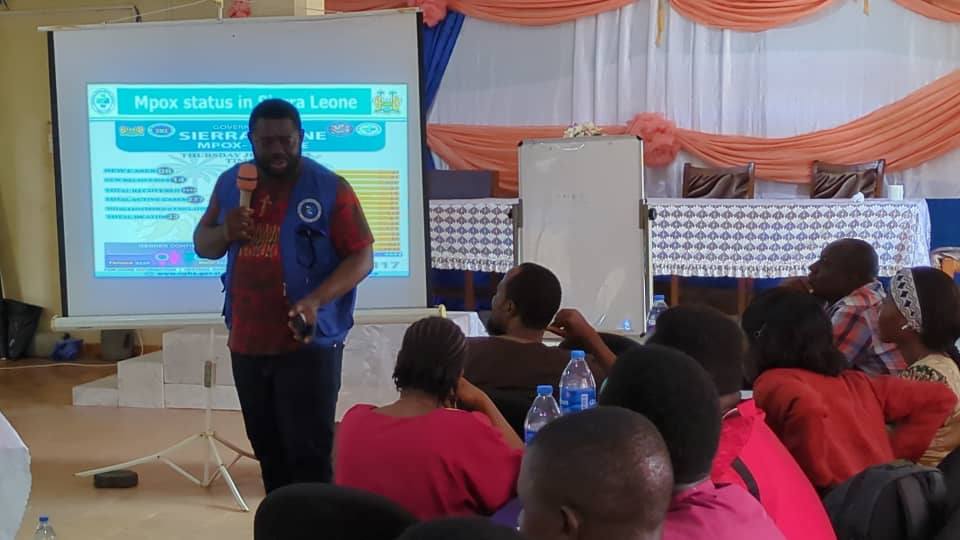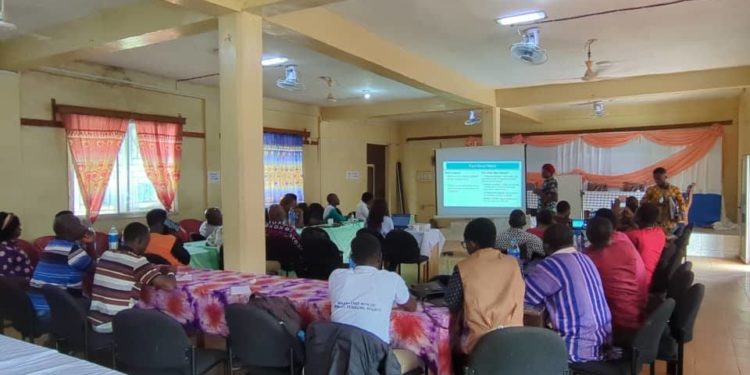By Kemo Cham
The National Public Health Agency (NPHA) Sierra Leone has concluded a week-long training on Infodemic Management for health communicators.
Nearly 70 participants took part in the training that ran from July 7th to 12th, among them members of the Health Reporters Network Sierra Leone (HRN-SL). The NPHA says the training was designed to enhance participants’ understanding of misinformation and disinformation related to public health and equipping them with effective communication skills to promote accurate health information dissemination. The goal, it adds, is to support the national health communication efforts and foster trust in verified health messages.
The training was conducted in three separate sessions in the regional capitals of Port Loko, Makeni and Bo. And it comes at the backdrop of intense campaign against mis and disinformation in the government’s response to the ongoing Mpox epidemic. The sessions entailed presentations, group work and role plays, all geared towards strengthening their capacity to identify and combat mis and disinformation.
The participants were drawn from all 16 districts of the country, among them 20 journalists. Also participating were representatives from the national One Health Platform, including social mobilization focal persons from the Ministry of Health, who also serve as Risk Communication Leads at the District Health Management Teams (DHMT), as well as district agricultural officers.
Alieu Tommy, Deputy Manager, Risk Communication and Community Engagement at the NPHA, said as custodians of information, journalists required adequate knowledge in dealing with the prevailing information disorder to ensure the right information is disseminated to the public.
“Journalists are the first point of call for information by the public. What we expect from the journalists after this training is an improved way of putting out verified information to the public,” said Mr Tommy, noting that the sessions also offered a platform to forge collaboration between the media practitioners and the health sector players.
Infodemic is described as an excessive amount of information on an issue, with the effect that achieving solution is made more difficult.
This training was conducted in collaboration with the Ministry of Health, with UNICEF providing both financial and technical support and Africa CDC providing technical support.
The training also comes at the backdrop of escalating cases of Mpox across Africa and Sierra Leone in particular. The country is one of the top four most affected by the epidemic, according to Africa CDC data.
As of Saturday, July 12th, Sierra Leone had recorded 4,701 cumulative confirmed cases and 35 deaths, according to data from the NPHA.
The NPHA says from the onset, its response has been negatively impacted by mis and disinformation, thereby hindering public compliance to stipulated infection prevention control measures.

As part of this training, participants were introduced to an app called the Community Listening Tool, which was designed with support from UNICEF, for reporting all forms of misinformation for prompt responses by relevant agencies.
Speaking at the closing session in Bo on Saturday, July 12, Patrick Lansana, Programme Manager, Health Promotion and Risk Communicationat the NPHA, said the training is part of efforts by the agency to promote specialised health reporting in the country and help functionalise the HRN-SL.
“The NPHA is ready to work with the Health Reporters Network to promote professional health reporting, and to achieve this, we need partnership,” said Lansana.
He added: “Journalists are very good partners in any response. When you give journalists the right information, they become your partners.”
For HRN-SL, the training offered not just opportunity for capacity building for its members, but also collaborations with health workers.






















